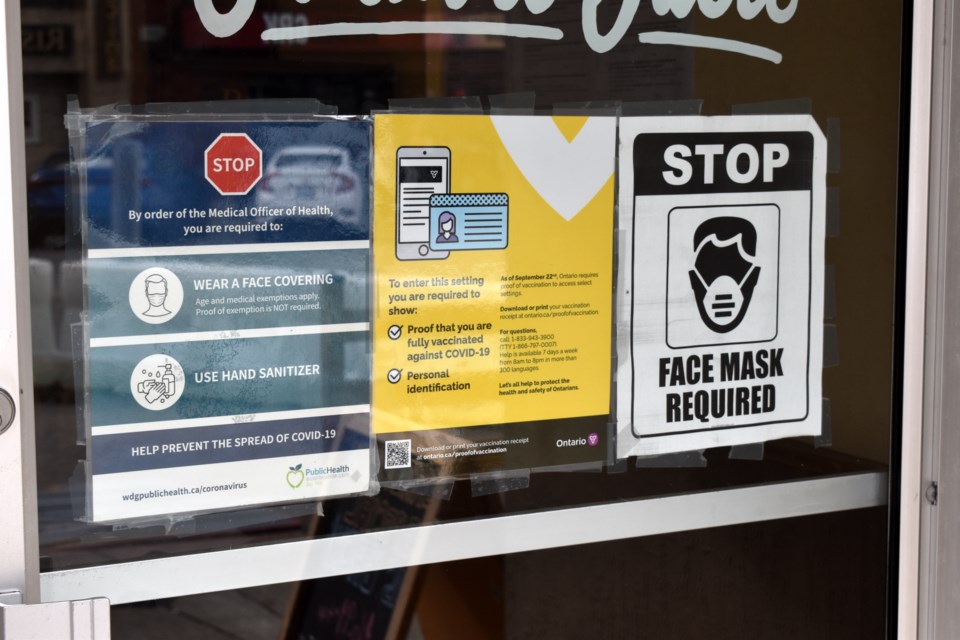Some marginalized communities in Guelph, such as those living with low-income and without access to stable internet and smartphones, are being further left in the digital divide with the new provincial QR code rollout, said some regional advocates.
The rollout of the QR code, which occurred from Friday to Sunday, allowed for Ontarians to download the digital enhanced vaccine certificate with the official QR code.
Local advocates say the new system presumes individuals have access to smartphones, data plans, reliable internet, printers and the digital knowledge to navigate the provincial website and access the QR code on their phones.
“Although alternative options are available, the emphasis on digital access with QR codes negatively impacts individuals living on low income who don’t have access to internet or digital devices like smartphones or computers,” said Dominica McPherson, coordinator of the Guelph & Wellington Task Force for Poverty Elimination.
Factors such as high home internet costs or unreliable access to a stable internet connection, paired with the high cost of owning a smartphone with a data plan are key factors that can present barriers to individuals within the community.
“The cost of internet and cellphones, in general, are very high, and we know too often that means access to those devices and services are outside the reach of people living on low incomes, which is why we see individuals facing disproportionate barriers when navigating the new QR system,” said McPherson.
McPherson said it’s essential that digital programs of this nature consider the barriers faced by people who don’t have reliable access to the internet or digital devices such as smartphones or computers.
Advocates said the government should have considered these points before moving toward a technology-based solution surrounding the display of vaccine passports.
“For me, it’s just planting that seed of having people imagine what it would be like to not have access right now,” said Kate Vsetula, director of community and organizational development at the Guelph Community Health Centre. “Because almost all our entire way of being and knowing is connected to our devices now, and for folks that aren’t able to access that now it’s a difficult reality."
Working with Get Connected, a program led by the Guelph Community Health Centre, upwards of 300 smartphones have been distributed to those in need.
“Having the prioritized way of allowance to enter places from a phone is certainly problematic,” said Vsetula.
The issue of digital equity goes beyond the monetary access to the required technology, it also extends to usability and digital knowledge.
“It’s not just access to the phone and the ability to download the QR code to make things fast and easy, it is the digital knowledge to be able to do that,” said Vsetula.
While the current printable vaccine receipt will be accepted at businesses as proof of a vaccine, the province said in a press release: “the province is encouraging individuals to download their enhanced vaccine certificate with a QR code as an easier, more secure and convenient way to have their proof of vaccination verified.”
Ontarians are still required to show a valid piece of identification when visiting select businesses and establishments.
Although some critics have voiced their disapproval of the system, others say that while the paper version is still accepted the QR code system has not presented any issues with its members.
Brian Smith, president of Guelph Wellington Seniors Association, said as the QR Code was recently introduced and the printed vaccination receipt remains an accepted proof of vaccination, they are not aware that this is presenting issues of a digital divide for members. There has been general support among GWSA members for requiring proof of vaccination to help us take care of each other.
